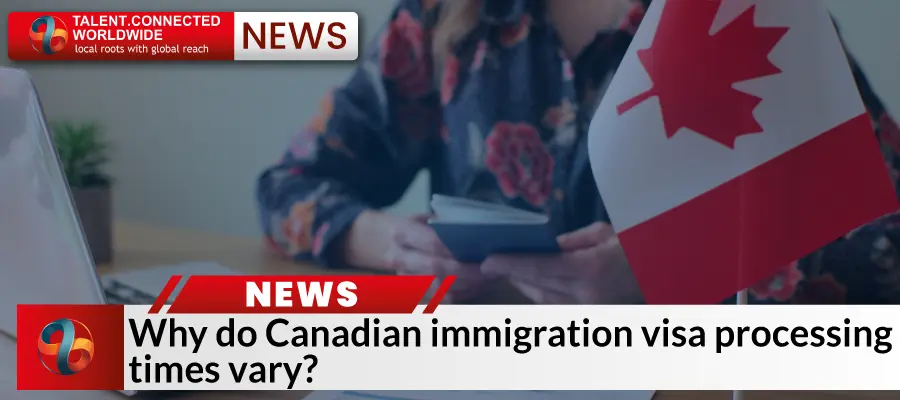
Depending on the nation or area in which they are located, the IRCC says that visa offices have various operational difficulties. So, that’s why Canadian immigration visa processing times vary in different nations or areas.
Service levels and processing times
Depending on the type of application, IRCC has varying service criteria. A service standard is a target set for the amount of time it should take to complete an application. For example, all Express Entry applications submitted after July 2022 have a six-month service standard, whereas temporary resident visas have a service standard ranging from 60 to 120 days.
The service standard varies from the actual time it takes IRCC to process applications. Backlog applications are those that are not process within the service standard for their program.
IRCC’s aim is to complete at least 80% of all applications within the service standard.
Why do Canadian immigration visa processing times vary?
According to the agency, processing an application may take longer if it is confusing or incomplete, and IRCC requires further information from the applicant. It may take more time in this case depending on how quickly and carefully the applicant answers. It may also take longer to complete an application if verifying an applicant’s information is difficult, which varies within the area
What effect did the recent strike have on processing times?
The Public Service Alliance of Canada’s recent strike forced approximately 155,000 federal government employees to go on strike from April 19 to May 3. IRCC advised that applicants might expect delays in processing both new and ongoing applications during this time period.
Immigration Minister Sean Fraser told reporters in Ottawa that he believes 100,000 applications that would have been handled during the strike were not completed. However, he anticipates that it will only take a few months to return to pre-pandemic service levels.
Other variables influencing regional variations
The distribution of resources significantly affects regional disparities.
Only 2% of the IRCC’s employees are settle in abroad, according to demographic statistics from 2022, while more than 55% are located in Ottawa, the organization’s national headquarters. This indicates that, in comparison to those in Canada, the capacity of foreign visa processing offices is limited.
The kind of application that is submit might also affect time. Different apps process more slowly than others. For instance, the IRCC processing time calculator indicates that applicants seeking study permits outside of Canada will have to wait an average of seven weeks for processing. The service standard for applications made from within Canada is three weeks.






